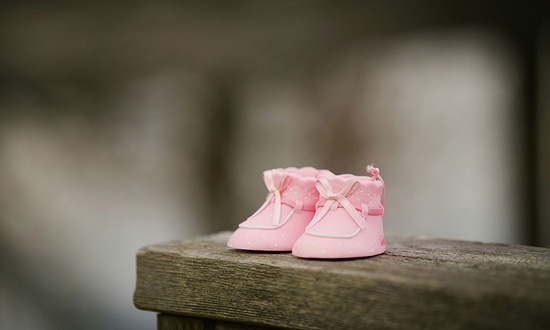Comment from a reader:
Let's not sentence expectant mothers to death who would otherwise die if not treated promptly for a miscarriage, ectopic pregnancy, or unexpected pregnancy complications that interrupt the development of an unborn fetus that was dearly loved and wanted. Abortion MUST remain legal and safe. Imagine yourself or any other woman you care about who might face the horror of being turned away from an emergency room and told to go home and wait until her condition turns into sepsis. See this article.
Response from Stephanie Anderson, EPM staff:
Treatment for a miscarriage or ectopic pregnancy is NOT an abortion. It is very important that we use precise language when are talking about these subjects. If a woman has miscarried, her child is already dead (confusion can happen because a miscarriage is medically called “a spontaneous abortion.”). Receiving treatment for that is in no sense an abortion. The same is true for an ectopic pregnancy; Randy writes, “Because of the nature of an ectopic pregnancy, the child would normally have no hope of survival. And surgery may be necessary to save his mother’s life. These are tragic situations, but they are not the intentional killing of an innocent person who could otherwise survive.”
Treatment for when the women's life is at risk are NOT outlawed by prolife laws, nor is treatment for a miscarriage or an ectopic pregnancy. Those in the media who say otherwise are being disingenuous, perhaps in a desire to cause confusion or push back against any protections for the unborn. The American Association of Pro Life OB/GYNS writes,
The difference between a miscarriage and an elective abortion is clear. In a miscarriage, the baby has already died and therefore any treatment of a miscarriage would not be an abortion. The procedures and treatments used for miscarriage management are not prohibited by abortion restrictions.
An ectopic pregnancy requires removing an embryo to save a mother’s life so that both lives are not lost. This life-saving treatment is not prevented by any current law restricting or banning abortion. Claiming that it is only serves to confuse women and potentially cause critical delays in care.
There are rare exceptions when a woman’s life is at risk, and the laws acknowledge that. Randy writes, “Friends of ours were faced with a situation in which removing the mother’s life-threatening and rapidly spreading cancer would result in the unborn child’s death. It was heartbreaking, but they and we were confident that the decision to save the mother’s life was right. The pregnancy was still so early that there wasn’t time for the child to become viable before both mother and child would die from the cancer. But it is critical to understand that this was in no sense an abortion. The purpose of the surgery was not to kill the child, but to save the life of the mother. The death of the child was a tragic and unintended secondary effect of life saving efforts. This was a consistently prolife act, since to be prolife does not mean being prolife just about babies. It also means being prolife about women, who are just as valuable as babies.”
We are deeply concerned about your statement that “abortion MUST remain legal and safe.” As we have already outlined, medical care for a miscarriage or an ectopic pregnancy is not abortion. But elective abortion results in the death of an unborn child. Such a statement is synonymous with, “Murder must remain legal and safe.” Or “Child abuse must remain legal and safe.” As Christians, we believe that God says all lives are valuable and created in His image—both those of the mothers AND those of the children in their wombs. Abortion is not the answer. We can love both of them, and many prolife people across the nation and around the world are leading the way in showing how that can be done. (For example, see Embrace Grace.)
Regarding the article you sent, “Restricting Abortion Will Cost Women Their Lives,” here is a response from the Lozier Institute, explaining that correlation does not imply causation:
They say:
These conclusions assume that lack of abortion causes maternal mortality, but there is no evidence for this conclusion, unless one assumes that by ending all pregnancies, one can end all the deaths associated with pregnancy. That fallacious reasoning would lead one to recommend prohibiting all cars to end deaths from motor vehicle accidents. Even so, it ignores the potential for maternal death following abortion, which is higher than commonly reported. In fact, the population most heavily affected by maternal mortality, Black women, who die in relation to pregnancy nearly three times as often as white and Hispanic women (53.3 Black deaths/100,000 live births vs 19.1 white deaths/100,000, 18.2 Hispanic deaths/100,000)[36], already have an abortion rate 3.7 times higher than white women.[37] Black women have both the highest maternal mortality ratios (MMR) and highest abortion rates. Both can’t be true if abortion reduces maternal mortality.
The conclusions of the above pro-abortion organizations ignore the scientific standard for determining causality, the Bradford-Hill criteria, which consists of: strength of association, consistency of data, specificity, temporality, dose-response, biologic plausibility, coherence, experimental evidence and analogy.[38] Immediately, “temporality” begs investigation. Maternal mortality ratio (MMR) determinations generally lag by several years due to the time it takes for the U.S. Centers for Disease Control (CDC) and Maternal Mortality Review Committees (MMRC) to analyze death certificates and differentiate “pregnancy-associated” (the death of a woman while pregnant or within one year of the end of pregnancy from any cause) from “pregnancy-related” deaths (the death of a woman while pregnant or within one year of the end of pregnancy from any cause related to or aggravated by the pregnancy or its management).[39] The most recent CDC U.S. maternal mortality report published in 2022 analyzed data from 2017-2019.[40] The first state in recent years to enforce abortion restrictions was Texas on September 1, 2021. Many other states’ restrictions were not able to be enforced until after the Dobbs decision on June 24, 2022. One cannot argue that abortion restrictions implemented in 2021 and 2022 led to maternal mortality in 2017 through 2020, as each of these three biased organizations did.
The correlation of maternal mortality with lesser abortion limitations is disingenuous. One cannot make a plausible argument that minor abortion legislation such as informed consent requirements, facility or provider standards or insurance restrictions could possibly impact maternal mortality. The AMA’s research permitting only one such law in a state to meet the definition of “abortion restrictive” is even more spurious.
Comment from a reader:
It's time that all Christians come to grips with the fact that abortion laws, no matter how restrictive or lenient, do not happen in a vacuum. Thank God this nation is still a democracy, and now that Roe vs. Wade is abolished, the people of each state have the right and responsibility to decide how to approach this issue. In a democracy such as ours, women should have the right to HAVE an abortion or NOT HAVE an abortion. Abortion occurs for a variety of reasons, contrary to all who erroneously call it "murder." As for me, I refuse to condemn women I don't know for making a decision that in some cases is a very hard one. The demand for abortion has been going down for years. Further reducing that demand is the only way forward in a nation where freedom and the rule of law still reign supreme.
Response from Stephanie Anderson, EPM staff:
We genuinely believe that you care deeply about women and about justice, and we commend you for that.
But as Christians, we cannot choose whether or not to believe that abortion is the murder of an unborn child. It is the destruction of a person made in the image of God. His command to not murder is clear. If this were about destroying the lives of black people, or any other people group, this would be painfully obvious. Just because they are much smaller people, in an earlier stage of development, doesn’t make the unborn any less precious to their Creator. And as Christ-followers, we cannot support their destruction.
That doesn’t mean we don’t reach out in compassion to women who’ve made that decision in the past. One major ministry of many prolife resource centers is sharing Christ’s offer of forgiveness with post-abortive women. The reasons someone chooses an abortion are complex and varied, but the gospel can speak truth and love over each woman.
However, as Daniel Darling writes, “We should do everything we can to make the conditions that factor into abortion less common. And yet we should also still work to pass as many laws as we possibly can that restrict the taking of innocent unborn life.”
Randy writes, “Jesus said in John 8 Satan is a murderer and a liar; he lies to cover his murders. Unborn children are made in God’s image, so every time the evil one kills a child, he is killing God in effigy. No wonder he lies so persuasively to strip unborn children of their lives. Tragically, many Christians who consider themselves deeply concerned about justice are now buying into this.”
Would you consider reading over Randy’s article Abortion in the Bible and Church History, and asking the Lord what He may have to show you? And also, his book Pro-Choice or Pro-Life? is available online for free.
In the end, we won’t stand before other Christians, or before legislators or governors or presidents. But we will stand before Jesus. What matters is HIS view of the unborn.







